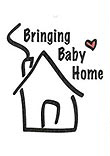Arriving home from the hospital with their newborn daughter, Shoshanna and Jon were both overjoyed and overwhelmed. The couple anticipated the happiness they would feel for this very wanted baby, but they were shocked by how hard it was to transition from a duo to a trio.
Shoshanna had spent hours talking to friends and pouring over websites to make the most informed decision on whether to get the Bugaboo or the Peg Perego. She and Jon had taken classes for Lamaze, newborn care, breastfeeding and infant CPR. This couple felt as prepared to be parents as they could be, yet in all of their efforts, they didn’t consider how becoming parents would change them and their relationship.
According to research by Drs. John & Julie Gottman, creators of the Bringing Baby Home Program, 67% of new parents report a decrease in relationship satisfaction after the birth of a child. Shoshanna and Jon found themselves immediately part of these odds; fighting more often, having no time for themselves or one another and feeling crushed under the weight of sleep deprivation. Jon, concerned about the additional costs of a child, retreated to work where he felt competent and needed. Shoshanna wondered if something was wrong with her or their relationship. Why wasn’t she ecstatic that they were finally a family? What this couple didn’t know was that their feelings were perfectly normal.
A recent Newsweek article reports that, in a study of over 31,000 couples, the current generation of parents find parenting forty-two percent more difficult than their predecessors. One of the reasons parents today find themselves more challenged and less happy is the breakdown of communities. In the past, most mothers stayed home and developed a support network of other mothers in their neighborhood. Today, we are challenged with not only more two parent working families but also with the isolation of suburbia.
While we may not live down the street from our parents and our best friends, we can take advantage of the resources in our communities and in so doing, some of the hardships found in parenting today will be mitigated. Most neighborhoods have programs for new mothers such as playgroups or educational classes. It’s important to get involved. Christy joined a breastfeeding support group at her hospital and said, “I knew every Wednesday I would get out of the house and get to talk to other mothers. That was a real life raft for me in the beginning.”
The importance of social support to diminish stress and depression is well documented. Being involved in a playgroup or class is more than time to socialize with other new mothers; getting out of the house and sharing our experiences and concerns with others both reduces the risk and alleviates the effects of post partum depression. Discussing our concerns normalizes our experiences and we feel less alone and less anxious knowing that others are going through similar struggles.
Debra, mother of a two year old, captures this sentiment. “As I was starting a new chapter in my life, becoming a mom, it was really great to have an instant group of friends in my playgroup; here were other moms and babies all at the same stage and the exact same age. I always felt better after going to a playgroup.” Research shows that when women verbally express their experiences they feel rejuvenated. This positive energy in turn helps us give more to our children.
Fortunately, Shoshana learned about a nearby mom’s group and got involved. The many conversations she had with other new mothers helped her to feel less isolated and better able to cope with the huge changes in her life. Asking other mothers about sleep problems, nursing and relationships stress enabled her get the support she needed.
In the next article we will visit with Jon and Shoshanna as they learn essential skills for maintaining their relationship during the transition into parenthood.
A version of this article first appeared in Shalom Baby’s Spring 2007 e-newsletter.


